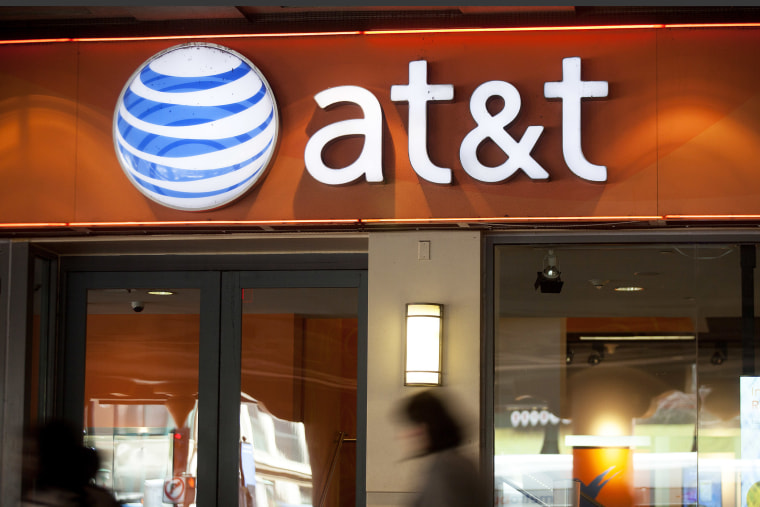Just two weeks before Election Day in 2016, Donald Trump decided to weigh in publicly on a proposed corporate merger. "AT&T is buying Time Warner, and thus CNN," the Republican told a Pennsylvania audience. He quickly added that this was a merger "we will not approve in my administration."
About a year later, however, the president told reporters he would not "get involved" in the litigation.
It was against this backdrop that the Justice Department did, in fact, try to stop the corporate merger -- not because of the president's petty preoccupation with CNN, which is owned by Time Warner, but because of the nation's anti-trust laws.
At least, that's the official story. Jane Mayer covers an enormous amount of important ground in her new piece for the New Yorker, but of particular interest was her reporting on Trump's behind-the-scenes efforts in this case.
[I]n the late summer of 2017, a few months before the Justice Department filed suit, Trump ordered Gary Cohn, then the director of the National Economic Council, to pressure the Justice Department to intervene. According to a well-informed source, Trump called Cohn into the Oval Office along with John Kelly, who had just become the chief of staff, and said in exasperation to Kelly, "I've been telling Cohn to get this lawsuit filed and nothing's happened! I've mentioned it fifty times. And nothing's happened. I want to make sure it's filed. I want that deal blocked!"Cohn, a former president of Goldman Sachs, evidently understood that it would be highly improper for a President to use the Justice Department to undermine two of the most powerful companies in the country as punishment for unfavorable news coverage, and as a reward for a competing news organization that boosted him. According to the source, as Cohn walked out of the meeting he told Kelly, "Don't you f***ing dare call the Justice Department. We are not going to do business that way."
It's possible, of course, that Justice Department officials would've filed the case anyway. What's more, there's no reason to see the larger issue through a partisan or ideological lens: the merger has been panned by many on the left over concerns about corporate consolidations.
But if Jane Mayer's reporting is correct -- it hasn't been independently verified by MSNBC or NBC News -- the underlying revelation points to yet another instance in which Trump tried to abuse the powers of his office in a flagrant, and perhaps even dangerous, way. When Richard Nixon tried to use federal agencies to target his perceived domestic enemies, he was forced from office in disgrace.
Indeed, if the president did try to intervene he may have been driven by petty contempt for a news organization, or possibly by a desire to help Rupert Murdoch's rival media empire. Neither explanation, however, casts Trump in a favorable light.
When then-Attorney General Jeff Sessions (R-Ala.) was asked under oath whether the president intervened in merger discussions, he wouldn't answer. Six months later, in May 2018, Rudy Giuliani said that Trump "denied the merger" between AT&T and Time Warner, but the presidential attorney walked this back soon after.
I'm also reminded of this TPM report from a year ago this week:
A group of former Justice Department officials is raising concerns that President Trump may have influenced the department's decision to block AT&T's merger with Time Warner to punish Time-Warner-owned CNN for its news coverage.Such politically-motivated interference would be unconstitutional, the former officials said in an amicus brief filed Thursday night in the lawsuit filed by DOJ to block the merger. It would also be part of a pattern of Trump appearing to use the DOJ to try to advance his political agenda."President Trump has urged a criminal investigation of his political rivals; he has suggested that he can instruct the Department to halt investigations into his associates; and he has claimed an 'absolute right to do what I want to do with the Justice Department,'" the filing reads."The president neither has the absolute right to do what he wants with the Justice Department nor the constitutional authority to punish a news organization for its critical coverage," it adds.
We didn't need fresh questions about Trump corruption, but we appear to have some anyway.
